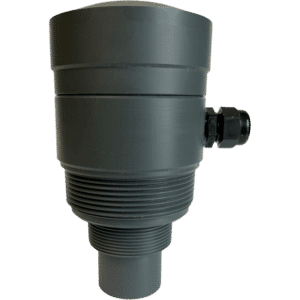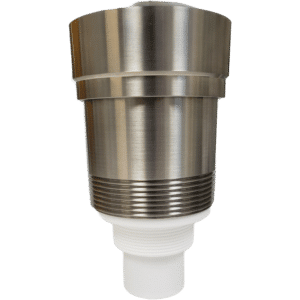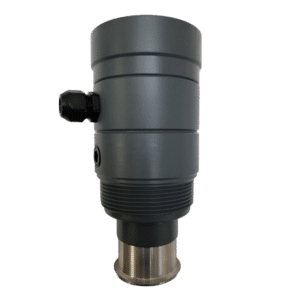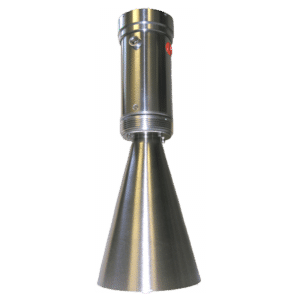Continuous Level Measurement for Liquid Applications
The R-LIQ pulse radar sensor from ABM is the ideal solution for liquid level applications with vapours, gases (CO2, CO, H2S, H2), foaming, ice or volatile surfaces. The non-contact radar sensor provides continuous level measurement up to 340 ft (103.6 m) with 4-20 mA output standard and simple push-button calibration. The sensor can be factory configured for a variety of applications with 2-wire (HART) or 3-wire / 4-wire (RS232 or RS485) power and communication options, remote monitoring with the optional Cellular Gateway and multiple mounting options.
Industries
- Water & Wastewater
- Chemical
- Petrochemical
- Food & Beverage
- Environmental
- Marine
Applications
- Process tank level and control
- Inventory level in storage tanks
- Flood monitoring
- Wastewater level in tanks
- Wave profile on ships
High Performance, Maintenance Free Radar Sensor.
- Self-adjusting sensor, automatically eliminates false echoes without user involvement
- High resolution with short transmitted pulses ensures accuracy
- Very narrow radiation beam enables installation close to tank walls
- No influence from mounting, walls or internal obstructions on sensors performance
- No influence from temperature, pressure or humidity on measurement
- Teflon rod antenna resists material and moisture build-up
- Non-contact and self-cleaning nature provides maintenance free operation
Technology Advantage
ABM’s smart, self-adjusting radar sensors continually monitor conditions in the environment and automatically adjust the transmitted energy and sensitivity to match the current tank conditions. This technique allows the receiver to detect only one echo from the measured media while all false echoes are pushed under the noise level and eliminated. The self-adjusting technique also gives the same amplitude of wanted echoes regardless of distance to the target. With one echo only, signal processing is very simple and the certainty of the measured echo being the target is 100%. This makes the ABM sensors very accurate and reliable.
Very narrow transmit pulses enable liquid interface detection, such as oil-water interface. The radar sensor has a very fast response, up to 20 updates per second, enabling control for fast moving applications (i.e. vehicles, boats, etc.). Very high dynamics enables detection of very low dielectric constant liquids (>2).
Operation is plug-and-play with ABM sensors. The self-adjusting nature means there is no need for mapping or profiling the environment or downloading several parameters. These signal process operations commonly used by other brands reduce the certainty in the measured materials level. ABM sensors are smart and automatically adapt without user involvement.
Measuring Range: Up to 340 ft (103.6 m)
Technology: Pulse radar
Frequency: 6.3 GHz (5.8 GHz outside North America), 26 GHz, dual 6.3/26 GHz, or dual 26/78 GHz. Application dependent
Calibration: Simple push-button calibration for configuration
Output: 4-20 mA out standard
Power: 16-30VDC (2-wire), 12-30VDC (3-wire), 115VAC (4-wire) or 230VAC (4-wire) operation options
Communication: HART, RS232 and RS485 optional
Remote Monitoring: Cellular Gateway for remote monitoring, control and 24/7 virtual support optional
Ambient Temperature: – 40 to 140°F (- 40 to 60°C)
Enclosure: Aluminum or 316L stainless steel options
Protection Rating: IP68, NEMA 6
Antenna: Teflon rod and 316L stainless steel horn options
Process Connection: 1 1/2“, 2” or 3” NPT mounting
Process Temperature: -40°F to +176°F (-40°C to +80°C)
Process Pressure: ≤ 5 Bar (72.5 psi)




